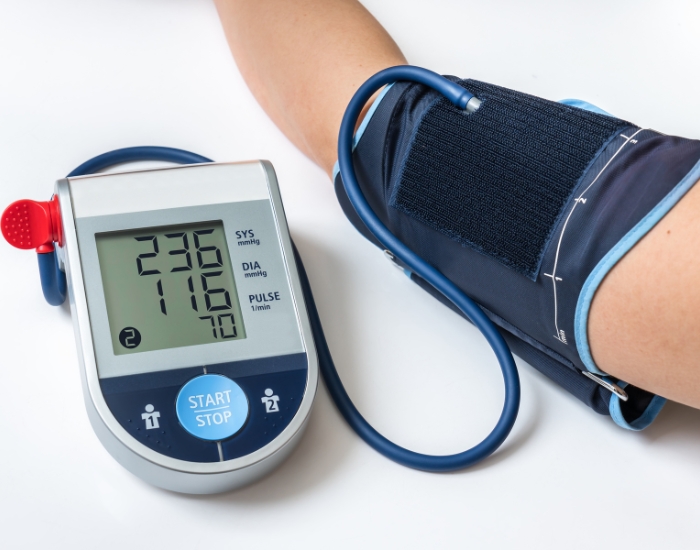Experiencing frequent nosebleeds can be unsettling, especially when combined with symptoms of high blood pressure. While these two conditions may sometimes occur independently, they can also signal an underlying health concern that warrants attention.
In this blog, we’ll explore the possible connections between nosebleeds and high blood pressure, highlight symptoms to watch for, and provide actionable advice to manage these issues effectively.
Understanding Nosebleeds
Nosebleeds, or epistaxis, occur when the tiny blood vessels inside the nose rupture. They can be caused by several factors, including:
- Dry Air: Low humidity levels or excessive indoor heating can dry out nasal passages.
- Nasal Irritation: Frequent nose blowing, allergies, or colds can inflame and damage the nasal lining.
- Trauma: Injuries to the nose from physical impact or even picking can lead to bleeding.
Most nosebleeds are minor and self-limiting. However, recurrent or severe nosebleeds may indicate an underlying issue, such as high blood pressure.
High Blood Pressure and Its Symptoms
High blood pressure, or hypertension, is often called the “silent killer” because it rarely causes noticeable symptoms until complications arise. In some cases, frequent nosebleeds might be one of the first warning signs, particularly if blood pressure is dangerously high.

Other symptoms associated with high blood pressure include:
- Persistent headaches.
- Blurred or double vision.
- Dizziness or lightheadedness.
- Chest pain or shortness of breath.
When high blood pressure is severe, it can damage blood vessels, including those in the nose, making them more prone to rupture.
Are Frequent Nosebleeds a Sign of High Blood Pressure?
While nosebleeds alone are not a definitive sign of high blood pressure, they can sometimes indicate its presence. When blood pressure is elevated, the added force can stress blood vessels throughout the body, increasing the likelihood of bleeding.
If you experience frequent or severe nosebleeds, it’s important to monitor your blood pressure regularly. Identifying hypertension early can help prevent serious complications like heart attack, stroke, or kidney damage.
Managing Nosebleeds and High Blood Pressure
Taking proactive steps can help address both conditions effectively.
- Stop a Nosebleed Safely: Sit upright and lean forward slightly to prevent swallowing blood. Pinch the soft part of your nose for 10–15 minutes while breathing through your mouth. Avoid lying down, as this can worsen the bleeding.
- Monitor Your Blood Pressure: Use a home blood pressure monitor to track your readings consistently. High readings (above 120/80 mm Hg) should be discussed with your doctor.
- Adopt a Heart-Healthy Lifestyle: A balanced diet low in salt and high in fruits, vegetables, and whole grains can help reduce blood pressure. Regular exercise, weight management, and stress reduction techniques are also essential.
- Avoid Nasal Irritants: Use a humidifier to combat dry air, and avoid smoking or exposure to other irritants.
When to Seek Medical Attention
Recurrent nosebleeds or symptoms like dizziness, headaches, and chest pain should not be ignored. Consult a healthcare professional if:
- Your nosebleeds last longer than 20 minutes.
- You experience heavy or frequent bleeding.
- You have other symptoms of high blood pressure or feel generally unwell.
At Lifetime Primary Care, our experienced physicians specialize in diagnosing and treating high blood pressure and related conditions. We can help identify the cause of your symptoms and develop a personalized care plan to protect your health.
Final Thoughts
Frequent nosebleeds and symptoms of high blood pressure should be taken seriously, as they may point to underlying health concerns. By understanding the potential connection between these issues and taking proactive steps, you can safeguard your well-being and prevent future complications.
Don’t wait to address these symptoms. Contact Lifetime Primary Care today to schedule a consultation and get the expert care you deserve.
Disclaimer:
The information provided in this blog is for educational purposes only and is not intended as medical advice. It should not be used to diagnose or treat any health condition. Always consult with a qualified healthcare professional for accurate diagnosis and treatment of any symptoms or medical concerns.



